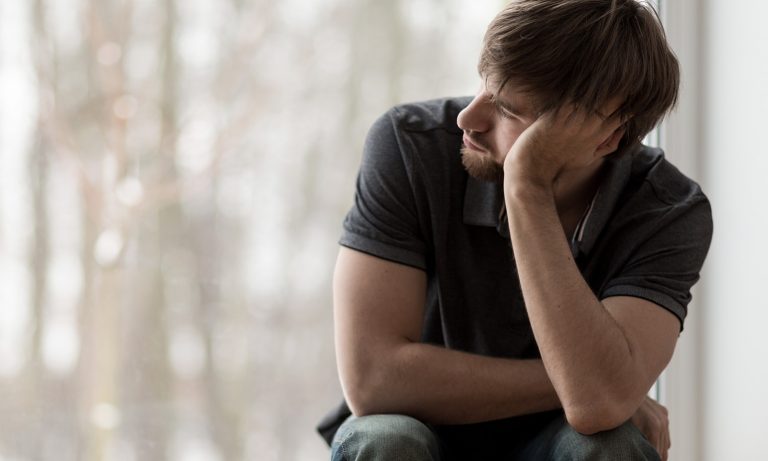


June 29, 2022
Introduction
Men and women both experience depression but their symptoms can be very different. Because men who are depressed may appear to be angry or aggressive instead of sad, their families, friends, and even their doctors may not always recognize the anger or aggression as depression symptoms. In addition, men are less likely than women to recognize, talk about, and seek treatment for depression. Yet depression affects a large number of men.
What is depression?
Everyone feels sad or irritable and has trouble sleeping once in a while. But these feelings and troubles usually pass after a couple of days. Depression is a common but serious mood disorder that may cause severe symptoms. Depression affects the ability to feel, think, and handle daily activities. Also known as major depressive disorder or clinical depression, a man must have symptoms for at least two weeks to be diagnosed with depression.
Both men and women get depression but their willingness to talk about their feelings may be very different. This is one of the reasons that depression symptoms for men and women may be very different as well.
For example, some men with depression hide their emotions and may seem to be angry, irritable, or aggressive while many women seem sad or express sadness. Men with depression may feel very tired and lose interest in work, family, or hobbies. They may be more likely to have difficulty sleeping than women who have depression. Sometimes mental health symptoms appear to be physical issues. For example, a racing heart, tightening chest, ongoing headaches, or digestive issues can be signs of a mental health problem. Many men are more likely to see their doctor about physical symptoms than emotional symptoms.
Some men may turn to drugs or alcohol to try to cope with their emotional symptoms. Also, while women with depression are more likely to attempt suicide, men are more likely to die by suicide because they tend to use more lethal methods.
Depression can affect any man at any age. With the right treatment, most men with depression can get better and gain back their interest in work, family, and hobbies.
What are the signs and symptoms of depression in men?
Different men have different symptoms, but some common depression symptoms include:
• Anger, irritability, or aggressiveness
• Feeling anxious, restless, or “on the edge”
• Loss of interest in work, family, or once-pleasurable activities
• Problems with sexual desire and performance
• Feeling sad, “empty,” flat, or hopeless
• Not being able to concentrate or remember details
• Feeling very tired, not being able to sleep, or sleeping too much
• Overeating or not wanting to eat at all
• Thoughts of suicide or suicide attempts
• Physical aches or pains, headaches, cramps, or digestive problems
• Inability to meet the responsibilities of work, caring for family, or other important activities
• Engaging in high-risk activities
• A need for alcohol or drugs
• Withdrawing from family and friends or becoming isolated
Not every man who is depressed experiences every symptom. Some men experience only a few symptoms while others may experience many.
What causes depression in men?
Depression is one of the most common mental disorders in the U.S. Current research suggests that depression is caused by a combination of risk factors including:
• Genetic factors—men with a family history of depression may be more likely to develop it than those whose family members do not have the illness.
• Environmental Stress—financial problems, loss of a loved one, a difficult relationship, major life changes, work problems, or any stressful situation may trigger depression in some men.
• Illness—depression can occur with other serious medical illnesses, such as diabetes, cancer, heart disease, or Parkinson’s disease. Depression can make these conditions worse and vice versa. Sometimes, medications taken for these illnesses may cause side effects that trigger or worsen depression.
How is depression treated?
A health professional can do an exam or lab tests to rule out other conditions that may have symptoms that are like those of depression. He or she also can tell if certain medications are affecting the depression.
The doctor needs to get a complete history of symptoms, such as when they started, how long they have lasted, how bad they are, whether they have occurred before, and if so, how they were treated. It is important that the man seeking help be open and honest about any efforts at “self-medication” with alcohol, non-prescribed drugs, gambling, or high-risk activities. A complete history should include information about a family history of depression or other mental disorders.
After a diagnosis, depression is usually treated with medications or psychotherapy, or a combination of the two. The increasingly-popular “collaborative care” approach combines physical and behavioral health care. Collaborative care involves a team of health care providers and managers, including a primary care doctor and specialists.
Where can I go for help?
If you are unsure of where to go for help, ask your family doctor or health care provider. You can also find resources online including the NIMH website at www.nimh.nih.gov/FindHelp, or check with your insurance carrier to find someone who participates in your plan. Hospital doctors can help in an emergency.
What if I or someone I know is in crisis?
Men with depression are at risk for suicide. If you or someone you know is in crisis, get help quickly.
• Call your doctor.
• Call 911 for emergency services.
• Go to the nearest hospital emergency room.
• Call the toll-free, 24-hour hotline of the National Suicide Prevention Lifeline at 1-800-273-TALK (1-800-273-8255).
• Veterans can call the Veterans Crisis Line at 1-800-273-8255 then press 1.
Source https://www.nimh.nih.gov/health/publications/men-and-depression
